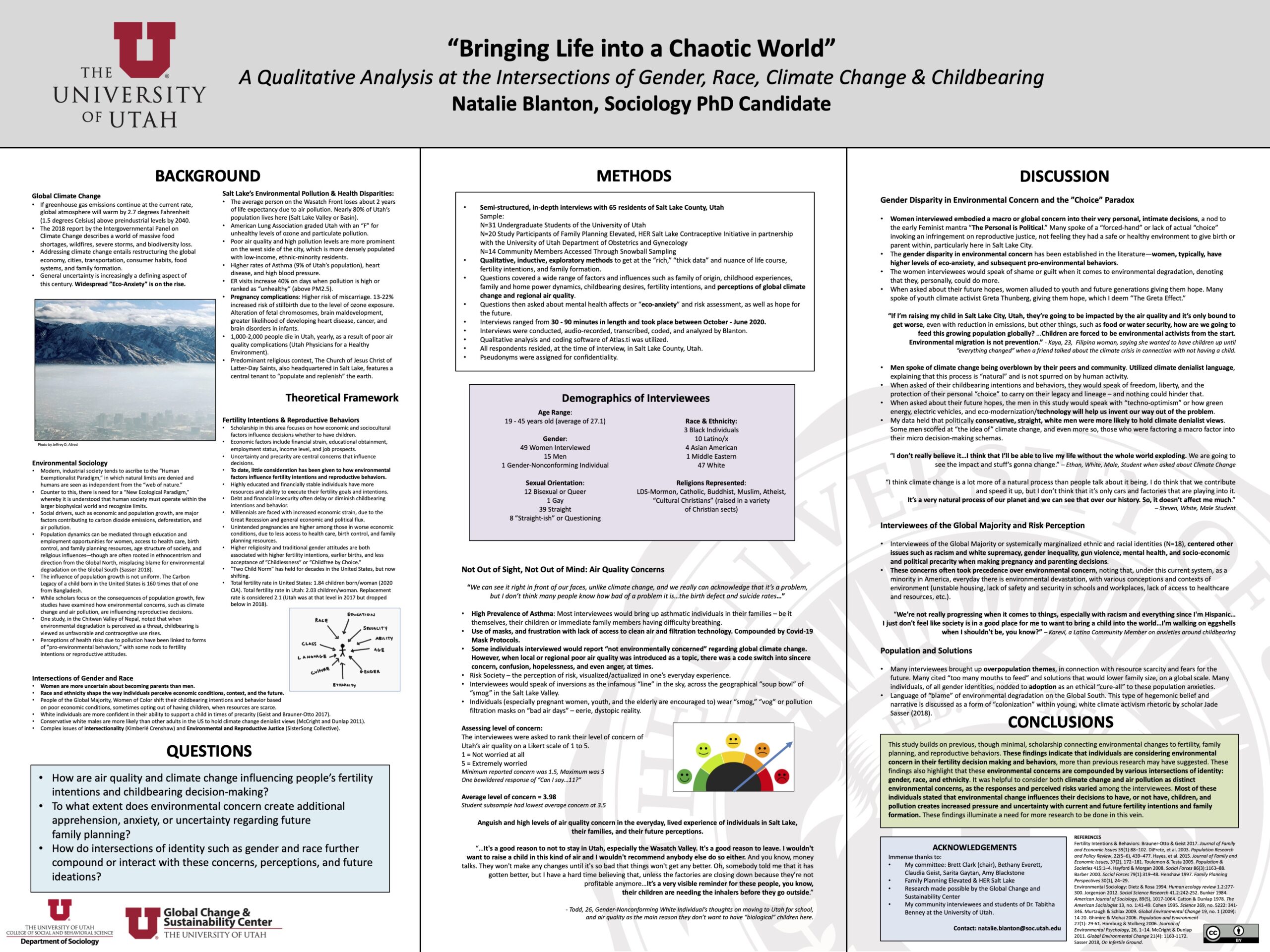Gender Differences Regarding Climate Change, Air Pollution and Parenting
-Natalie Blanton
[bs_collapse id=”collapse_bb86-afd7″]
[bs_citem title=”Bio” id=”citem_e610-6c22″ parent=”collapse_bb86-afd7″]
I am currently a PhD Candidate in Sociology. My research, teaching, and advocacy meets at the nexus of Environmental and Reproductive Justice. I study how air quality and climate change concerns are influencing people’s fertility intentions and childbearing decision-making, and, to what extent do intersections of identity such as gender and race interact with these concerns, perceptions, and behaviors. As a community-engaged scholar, I hope my work contributes to a more safe and just future for us all, including generations to come
[/bs_citem]
[bs_citem title=”Abstract” id=”citem_eca8-96a7″ parent=”collapse_bb86-afd7″]
How are concerns regarding climate change and childbearing embedded in gender and race? This research investigates how environmental concerns of global climate change and regional air quality shape or influence fertility intentions, decisions, and behaviors through an intersectional (race and gender) analysis. I conducted 65 in-depth interviews with adult residents of Salt Lake County, Utah. I find distinct gendered differences in how individuals approach these perceived risks and future ideations for themselves and their reproductive trajectory. Women-identifying individuals internalized climate change and air quality concerns voicing feelings of guilt and shame for global environmental woes and tying those personal responsibilities into their childbearing decision-making and behaviors. Most men interviewed do not have this internalization, and there is a displacement or removal of them from these issues, placing responsibility on the powers that be. People of the Global Majority brought up a diverse array of concerns regarding their children and their family formation practices outside of environmental degradation. Gendered socialization, racism in a sociocultural context, and future precarity emerge and intersect with environmental concerns.
[/bs_citem]
[bs_citem title=”Narration” id=”citem_780c-0f71″ parent=”collapse_bb86-afd7″]
Are people changing their future plans, such as having children or not, in the face of global climate change or regional air quality concerns?
How much do these concerns intersect or compound with individuals’ gender?
To find out, I interviewed 65 adult residents of Salt Lake County, Utah.
Listen to Natalie describe her research:
Audio Player
